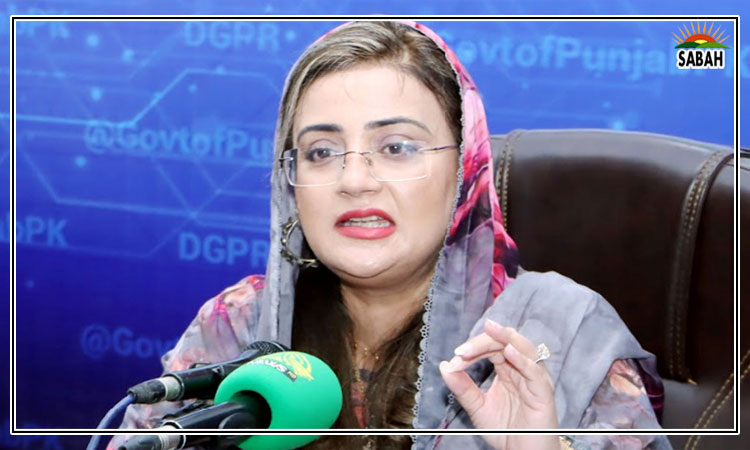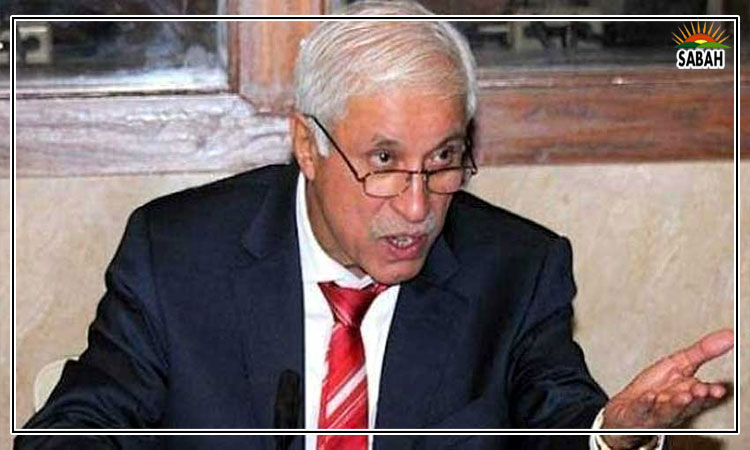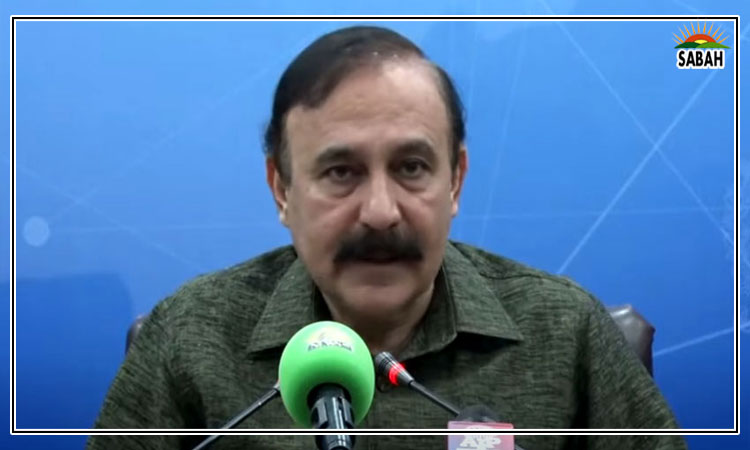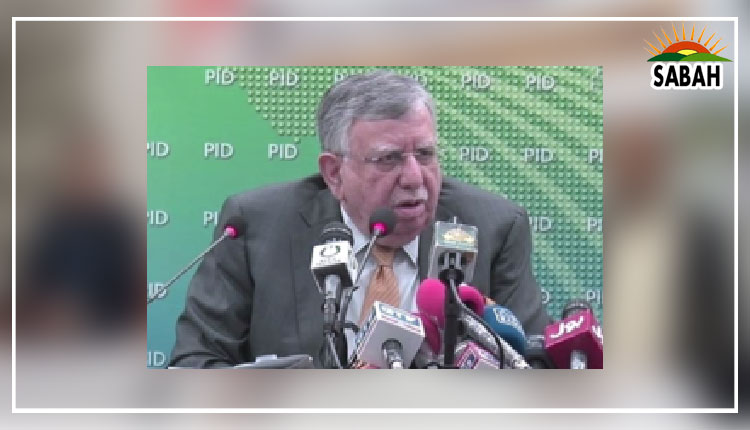Negotiations have been held with IMF over relief package announced by Prime Minister: Shaukat Tarin
ISLAMABAD, Mar 09 (SABAH): Finance Minister Shaukat Fayaz ahmed Tarin has said the government is providing a subsidy of 104 billion rupees on petroleum products in order to provide relief to the people.
Addressing a news conference in Islamabad on Wednesday, he said given soaring prices of petroleum products in the international market, we have reduced the petroleum levy and brought to zero the sales tax.
Shaukat Tarin said that those using seven hundred units of electricity per month will be provided with subsidy of five rupees per unit for the next four months. For this, he said, we will have to give a subsidy of 136 billion rupees.
The Finance Minister said negotiations have been held with the IMF over this relief package announced by the Prime Minister. He said the IMF should not have objections on the package as we are meeting it from our own resources including enhancement in tax revenues. He said this will not increase our fiscal deficit.
Shaukat Tarin said the government has also given industrial relief package to promote industries in the country. He said the package envisages tax holiday for overseas Pakistanis and incentives for the turnaround of sick industries.
The Finance Minister said tax exemptions have also been given to the IT sector in order to significantly bolster its exports. He pointed out that the IT sector grew by forty seven percent last year and currently growing by seventy percent. He said we target one hundred percent growth in this sector during the next year. Shaukat Tarin said our trade deficit has also come down.
Shaukat Tarin said Prime Minister Imran Khan should not have publicly criticised the European Union during a political gathering in Vehari while reacting to a letter sent by the EU envoys asking Pakistan to condemn the Russian attack on Ukraine.
The finance minister made these remarks in response to a question by a journalist during a press conference in Islamabad.
The journalist had asked whether the remarks by the premier would impact trade ties with the EU. Tarin said there was no need to worry about EU’s response.
Tarin further said that it was the right of the prime minister to “protect his country and its prestige” as Europe should not dictate Pakistan. He, however, added the premier had just shared his sentiments publicly, something he probably should not have done.
Speaking about the economy, Tarin said trade deficit and inflation were declining as indicated by latest economic data. The federal minister said that the trade deficit went down to the pre-Covid-19 position and was recorded at $3.1 billion in February 2022. He said the deficit went down by 28 per cent compared to the previous month (January) and 35 per cent as compared to December 2021.
He asserted that if remittances of around $2.5 billion were deducted from this figure, the deficit in actual terms would come down to just $600 million and added that this was an achievement that was not being highlighted.
Likewise, inflation in January 2022 was recorded at 12.95 per cent which came down to 12.2 per cent in February, the finance minister said, adding that if the price hike in tomatoes were excluded from this figure, then the inflation was recorded at around 10.8 per cent, which meant that it was reduced by 2.2 per cent in one month.
Talking about the total figures, the minister said inflation from November to February has remained flat.
The finance minister further said if the impact of the international commodity cycle was to be excluded, then domestic inflation had been in control and elaborated that the international prices of oil, petrol, and coal were affecting prices in the country.
Meanwhile, Pakistan’s revised estimates show that its primary budget deficit will breach the recently agreed limits with the International Monetary Fund (IMF) and inflation will remain high even though there is positivity in the economic growth rate trajectory.
As against the requirement of showing Rs25 billion primary budget surplus, the sources said, there could be a primary budget deficit of over 1% of the gross domestic product (GDP) even at the revised base of the economy.
Speaking about the IMF, the federal minister said the Fund should not have objections to the relief package announced by the prime minister and said the government held talks with the international money lender over the recent package.
According to Tarin, the relief package would not increase the fiscal deficit and the government was not taking loans to provide relief to people. He said the package was announced after an uptick in revenue generation among other things.
The government diverted some amount from Ehsaas programme and Covid-19 funds along with the use of dividends from the state-owned enterprises, he said, adding that there were multiple areas from where the finances were extracted to prepare the relief package.
Tarin said it was not a concern of the IMF but “it is the responsibility of the government to inform them of such decisions, including the looming political instability”.
The finance minister further said tax exemptions have also been given to the IT sector in order to bolster its exports. He pointed out that the IT sector grew by 47 per cent during the last year and currently growing at a pace of 70 per cent.
The minister said the government also discussed with China their investment plans and future roadmap for Pakistan. “We sought their support in sectors including industries, agriculture, IT sector and trade.”
He underlined that the government had also asked China to commence projects built under the China-Pakistan Economic Corridor. “It will help us economically.”
He maintained that Pakistan could not move forward without undertaking industrialisation.
The minister reiterated that Pakistan’s economy was moving in the right direction. “Inflation in January had reached 13pc and it has now dropped to 12.2pc last month.”
Tarin was of the view that the government had controlled inflation “very well” if disturbances caused by international inflationary pressure were kept aside.
He also said the foreign investors were considerably satisfied with measures taken by the government for facilitation of businesses, however, “they have sought a little more improvement as well, which we are working on.”












